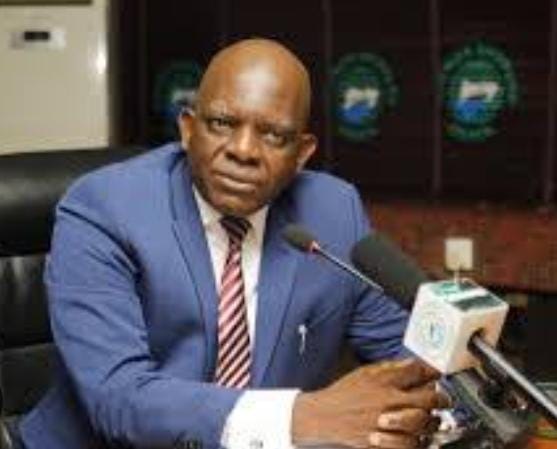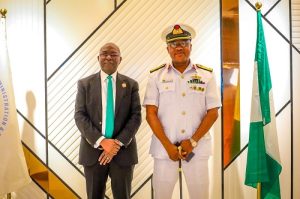Shipping: Piracy Capitulation in GoG and Lloyd’s Disputed War Risk Surcharges


By Francis Ugwoke
Piracy is one big issue that has impacted negatively on Nigeria and the rest of the West African countries as far as international trade is concerned. It has been the bane of international shipping for decades. Apart from piracy, political crisis in which other countries, mainly the international trading partners and conference liners are apprehensive of the safety of businesses in the region, particularly Nigeria, has also been a major issue. The result has been in major liner conferences from different continents placing special surcharges on goods coming to Nigeria. Even when there is political stability and piracy free attacks, the liners have had to maintain such surcharges. Few years back, at a time of no piracy attacks or glaring reduction in such incidents, some multinational shipping lines who are part of the cartel of liner conferences decided to introduce what they described as special onboard security on claims of piracy in the West African sub-region. Although one cannot question the decision, however, this was even when visiting officials of the International Maritime Organisation (IMO) were giving Nigeria kudos for being able to fight piracy to a standstill following the implementation of the Suppression of Piracy and Maritime Offences (SPOMO) Act. This no doubt helped in suppressing piracy and indeed created a safer routes for ships using the Gulf of Guinea region. As a matter of fact, the IMO Secretary General, His Excellency Kitack Lim had commended Nigerian Navy and the Nigerian Maritime Administration and Safety Agency (NIMASA) for being able to effectively combat piracy in the Nigeria’s territorial waters and GoG with regional and international partners. During a visit to Nigeria in 2022, Lim was quoted saying, “As we continue to look at ways the International Maritime Organization (IMO) can assist Nigeria, and other African member states, in increasing their maritime capabilities, I wish to use this opportunity to congratulate NIMASA for the successes recorded in reducing piracy and other maritime crimes in Nigeria’s territorial waters, and the Gulf of Guinea area, to record low levels.
“We understand that this has come about through NIMASA’s collaboration with the Nigerian Navy, as well as local and international partners and for this, we say congratulations”. It would be recalled that between 2019 and 2021 no fewer than $200 million was spent on the implementation of the Deep Blue Project .
This huge sum was spent on provision of critical infrastructure including commissioning of 600 specially-trained troops, several quick response security vessels and aircraft, unmanned aerial vehicles as well as armored vehicles.
But the extent to which multinational shipping lines or conference liners acknowledged this leaves much to be desired. This is because the feat recorded by Nigeria with others in the GoG as far as piracy is concerned did not seem to have translated into reduction or relaxation of the shipping surcharges in the name of war risk insurance surcharges. It would be recalled that the Nigerian Shippers Council (NSC) had taken the matter to the Union African Shippers’ Council (UASC) for collaborated engagement. The matter had earlier been tabled before the World Shippers’ Association few years back. But the issue has lingered.
In March this year, the nation’s apex maritime agency, NIMASA, raised alarm over the huge amount paid as war risk insurance premiums to international insurers in the past three years. The agency put the figure at $1.5 billion, that is $400m annually. NIMASA’s spokesman, Edward Osagie had in a statement said, “Although the Nigerian Bureau of Statistics does not have precise data on the total WRI payments made to international insurers, available figures indicate that Nigeria has paid over $1.5 billion in the past three years alone to Lloyd’s of London, Protection and Indemnity (P&I) insurance, and other foreign insurance firms.
“The impact on Nigeria’s economy is staggering for a Very Large Crude Carrier (VLCC) valued at $130 million, the WRI surcharge per voyage is approximately $445,000. For new container vessels valued at $150 million, the cost rises to $525,000 per voyage.
“Maersk, one of the world’s largest shipping companies, has also introduced a transit disruption surcharge of up to $450 per container, while other shipping lines impose a war risk surcharge of $40–$50 per 20-foot container.”
Following this development, the agency said it has engaged global stakeholders, among them, the Chatham House, UN, BIMCO, and INTERCARGO to remove the surcharges since considerable progress has been made in addressing piracy issues.
NIMASA said it has begun campaign to end the surcharges.
Osagie added in the statement, “Recognizing the severe economic implications of this financial burden, the NIMASA under the leadership of Dr. Dayo Mobereola has launched an aggressive campaign to eliminate war risk insurance on Nigeria-bound cargo.”
NIMASA is not alone. Apparently worried about the effect of war risk insurance surcharge on shippers, the Executive Secretary, Nigerian Shippers’ Council (NSC), Dr. Pius Akutah, recently renewed calls for the removal of the surcharges. Akutah described it as unjustifiable war risk insurance since Nigeria has recorded a lot of gains in maritime security.
Speaking in Lagos at a public forum, Akutah, said the surcharge has become a heavy burden on importers and the national economy.
In his paper titled “Burden of War Risk Insurance Surcharge on Nigerian Maritime Trade – A Case for Review”, he also lamented that Nigeria has paid a huge sum of $1.5 billion to foreign insurers, including Lloyd’s of London, Protection and Indemnity (P&I) Clubs, and other international underwriters. Akutah argued that this was wrong considering reports from the International Maritime Bureau (IMB) showing that there has been a significant drop in piracy in Nigeria and the rest of the GoG for years now. The NSC CEO who was represented on the occasion by the Director, Regulatory Services, Mrs Margaret Ogbonna, also said that the Council plans to meet with the lead insurance firm, Lloyds on the issue of the war risk insurance surcharges.
He said, “The Nigerian Shippers’ Council, as the Port Economic Regulator and a strong advocate for the protection of shippers’ interests, has consistently called for a review and removal of this war risk insurance surcharge. It is our firm belief that the continued imposition of these premiums is no longer justifiable, given the improved security metrics and Nigeria’s demonstrable commitment to safe shipping.
“Based on the report we are getting, the NSC is working towards engaging with international underwriters, Lloyd’s Market Association, and P&I clubs, to advocate for a data-driven reassessment of the risk status of Nigerian waters.
“We will also engage with NIMASA and other agencies to compile and present empirical evidence that clearly reflects the current security realities in our maritime domain.
“Furthermore, the Council supports ongoing discussions at ECOWAS, the Gulf of Guinea Maritime Collaboration Forum (GOGMCF/SHADE), and IMO platforms, aimed at securing recognition of Nigeria’s security achievements and the need for fairer treatment by the global shipping and insurance communities” .
“We recognize that addressing this challenge requires continued collaboration between government, the private sector, the media, and international partners
“Available figures indicate that Nigeria has paid over $1.5 billion in the past three years alone to Lloyd’s of London, Protection and Indemnity (P&I) insurance, and other foreign insurance firms”
Industry watchers are of the view that while NIMASA continues its aggressive campaign to eliminate war risk insurance, the NSC should as well collaborate with the Union African Shippers’ Council in the fight against the surcharges. Specifically, the NSC should be able to get the UASC to draw the attention of the World Shippers’ Council which is an umbrella association of all shippers’ councils to assist in addressing the issue. The World body has more strong force to call conference liners in different continents and the Lloyd’s of London to end the war risk insurance surcharge being imposed on imports destined for Nigeria and the rest of the countries in West African sub-region.





